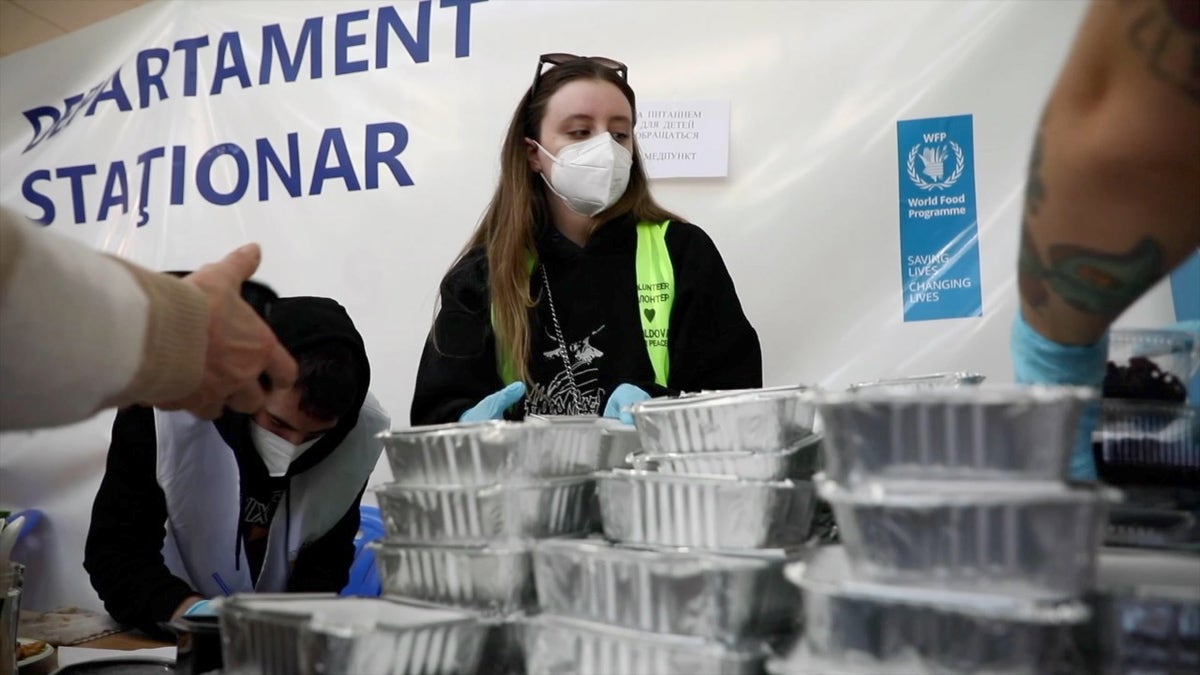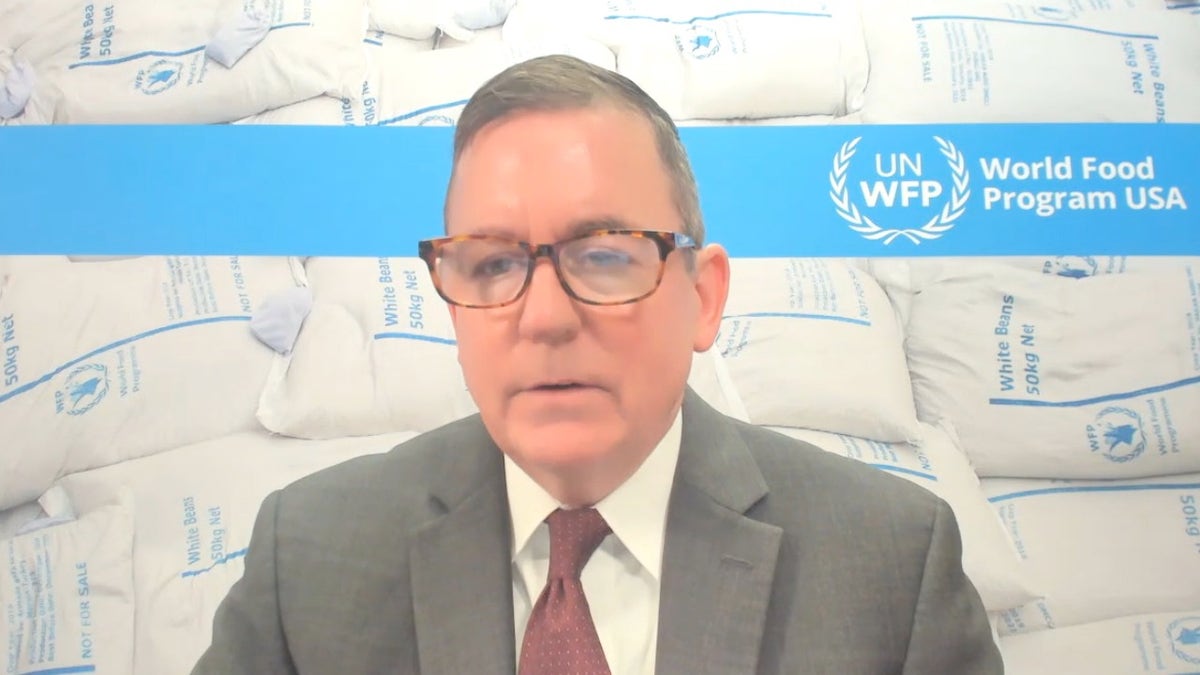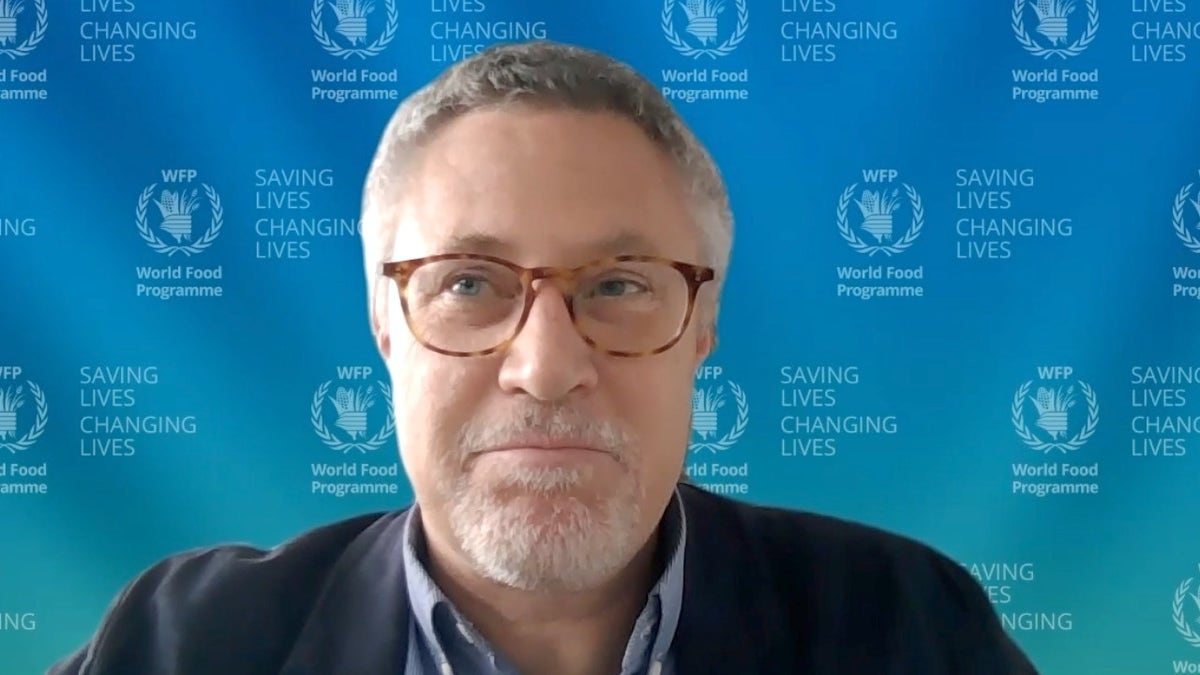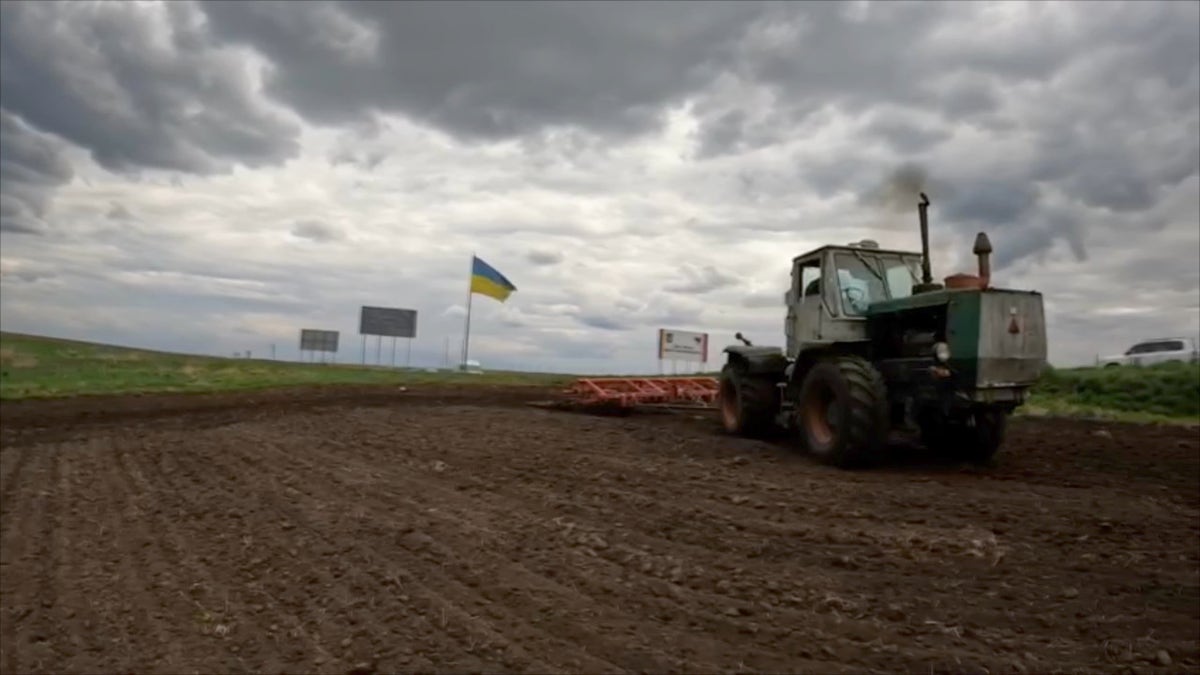A food crisis putting nearly 50 million additional people around the world at risk of famine has no quick solutions, officials with the World Food Programme and its U.S. counterpart told Fox News.
The war in Ukraine is fueling the food shortage, but supply chain complications stemming from the COVID-19 pandemic, rising costs and climate issues, has compounded the crisis, according to the officials.
"We have more threats to food insecurity than I think we've ever had in humanity," Food Program USA CEO Barron Segar told Fox News. "Today, there are 48.9 million people that are on the brink of famine."
"We know that people are dying today because there's a lack of food," he continued.
RUSSIA-INDUCED GLOBAL FOOD CRISIS PUSHES 49M TO ‘BRINK’ OF FAMINE, STARVATION: EXPERT WARNS

A woman hands out food provided by the World Food Programme. (UN World Food Programme)
Russia and Ukraine, together considered the breadbasket of the world, accounted for nearly 30% of global wheat exports before the war, according to the International Food Policy Research Institute. But Russia has attacked Ukraine’s ports and has formed a blockade against it in the Black Sea.
"The war in Ukraine has destabilized the world as it relates to food," Segar said. "It is not just a war against Ukraine. It is a war against humanity."
"Many countries are suffering, and millions of people are going to suffer even more because of this war," he added.
The World Food Programme, a branch of the United Nations, serves about 140 million people, according to Segar. But he said the group is having to cut food rations.
"Imagine telling your child that they're going to go from two meals a day down to one," Segar told Fox News.
Even before Russia invaded Ukraine, there were looming food shortages.

Barron Segar, the CEO and president of the World Food Program USA, discusses the looming food shortage stemming from the Ukraine war.
"The global economy coming into this was already a bit of a stressed situation because of COVID and the impact of the past couple of years on shipping and on production," World Food Programme’s deputy director of emergencies, Brian Lander, told Fox News.
The number of severely food insecure people has doubled to 135 million since the pandemic began, according to the World Food Programme. More than 800 million people face chronic hunger.
"Pre-COVID years, we talked about famine, but it was relatively rare," Segar said. "Today, we have this domino effect of climate and COVID and cost and conflict, and they're all beating up on each other."
"COVID really knocked down the supply chain," Segar added. "That had dramatic consequences on communities that are really hungry."
He also said that during lockdowns – and in countries where lockdowns are still in place – farmers couldn’t bring their food to market.
Meanwhile, some countries are facing abnormally severe droughts, according to Segar. That "basically makes it impossible for them to harvest and to keep livestock alive," he said.
East Africa, for example, is facing its worst drought in decades, and up to 20 million people risk severe hunger, the BBC reported in May.

The World Food Programme's deputy director of emergencies, Brian Lander, discusses how food supplies are affected by the Ukraine war.
ZELENSKYY'S GLOBAL FOOD CRISIS PREDICTION MAY BE 10 WEEKS AWAY, UN OFFICIAL SAYS: 'SEISMIC'
Effectively, the Ukraine war tightened an already short supply, which has helped increase the food costs – along with global inflation, according to Segar.
"Costs are going up … so that food is becoming less affordable for people here in the United States, but in particular, people who are about to enter the phase of starvation around the world," Segar told Fox News. He said the issue is particularly bad in some developing countries where people make $1.90 a day.
"You can't survive when you're earning $1.90 a day and the cost of food has gone up by 50%," Segar said.
The World Food Programme’s monthly operations cost have increased 50% since 2019. The $71 million increase could feed 3.8 million people once a day for one month, according to the UN branch.
Russia’s invasion also affected the World Food Programme’s ability to obtain food. About 50% of its wheat came from Ukraine, according to Segar.
"There's enough food between corn maize and wheat and oil that's stored in silos or on container ships in Ukraine to feed 400 million people," he said.
"Imagine if we can't get that food to those who are starving, to those who are hungry," Segar continued. "It is going to have a devastating effect on the world."
Almost all of Ukraine’s grain exports were shipped out of the Black Sea prior to the war, according to the World Food Programme. But moving the food by land is "a very daunting task" – and expensive – task, Lander told Fox News.

A tractor at work in Ukraine, which, together with Russia, made up 30% of the world's grain exports before the war.
ZELENSKYY TAKES JAB AT PUTIN OVER G20 SUMMIT, HOPES 'NO OCCUPIERS' WILL BE IN ATTENDANCE
Additionally, Ukrainian farmers, who normally harvest in July and August won’t have anywhere to store their product unless ports reopen, meaning it could go to waste.
"I don't have an immediate solution at all apart from: stop the war in Ukraine," he said. "There's no reason to have a war in Ukraine, and there's no reason for us to be facing this kind of additional pressure on vulnerable populations around the world."
"One reaction that everyone should have is outrage," Lander added. "You know, outrage that in a world in this century and this modern world, that we have this amount of people, let alone one person going starving."
Lander said a longer-term solution would be to develop other countries’ ability to export high-quality food at a high-volume to diversify available sources.
CLICK HERE TO GET THE FOX NEWS APP
"But in order to do that, you need to inject the resources for those farmers to be able to have the ability to produce grain at that type of level of that quality and that scale," Lander told Fox News. "It's an investment."
He said there’s already "enough food around the world to feed everybody on the planet." But the issue is successfully moving it to people in need.
"We can feed them. That's not an issue," Lander told Fox News. "We can get that food. We can move it to the places where it needs to be, but we need the funds to be able to do that."

